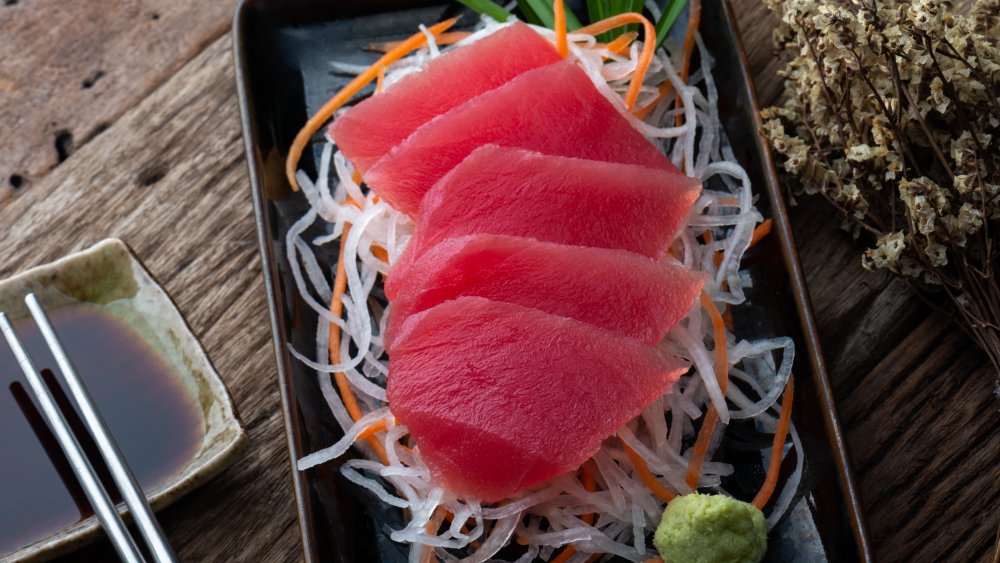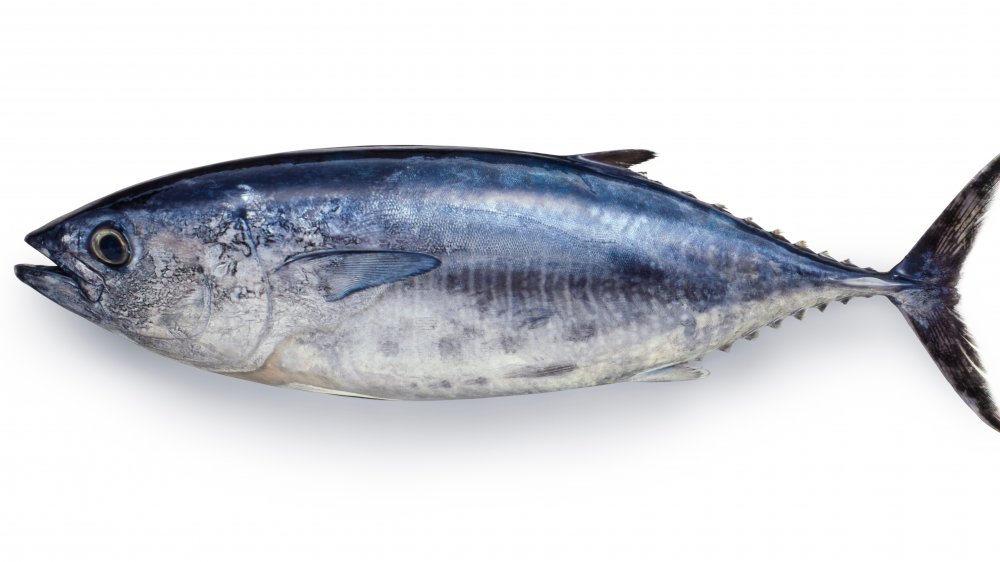The True Reason You Should Avoid Eating Bluefin Tuna
Bluefin tuna is one of the most sought-after fish in the ocean. These beautiful blue and silver-white creatures can grow to be over six-and-a-half feet in length and weigh 550 pounds or more (via National Geographic). The record holder for largest bluefin ever reeled was caught in Nova Scotia and tipped the scales at 1,496 pounds. That's a lot of fish. In 2019, a buyer in Tokyo plunked down the equivalent of $3 million for a 612-pound bluefin tuna at a fish market auction, making it the most expensive bluefin tuna ever sold (via Business Insider). Why would anyone pay that much money for a fish?
The answer goes back to the high school economics concept of supply and demand. Bluefin tuna fishing is a lucrative business for commercial fishing boats and for the sushi and sashimi restaurants who buy it to serve up. A favorite delicacy for the well-heeled who can afford to purchase the deep pink flesh of this luxury fish, especially in countries like Japan and the United States, bluefin tuna can be found on chi-chi restaurant menus like Nobu in Los Angeles and Zawa Japanese in New York City (via EarthTimes). However, you might want to think twice the next time you see this prized seafood on a menu and you want to order it, and here's why.
It contains high levels of mercury
Bluefin tuna was not always the luxury fish it is today. Per Scientific American, the Samurai refused to eat it on the grounds it was unclean. Today, bluefin tuna is often called "maguro" in Japan and can run you a pretty penny if you decide to appease your hankering. But according to Earth Times, the bluefin tuna has been overfished and depleted from our ocean waters, leading conservation organizations to add it to their endangered species list and press for better legal protections. In 2015, the U.S. took steps to protect the bluefin tuna during its breeding season. But these protections have been decreased by the National Oceanic Atmospheric Administration, relaxing restrictions that were working to help boost tuna numbers as part of a twenty-year plan (via Pew Trusts). From an environmental standpoint, if we stop ordering this seafood menu item, bluefin tuna populations will be better off.
Additionally, bluefin tuna contains high levels of mercury, a toxic metal that can cause some serious kidney and nervous system problems for pregnant women and children in particular. And unfortunately, cooking the fish doesn't change its toxicity (via Natural Resources Defense Council). It is recommended by the Environmental Defense Fund that consumption of bluefin tuna be limited or avoided completely.

